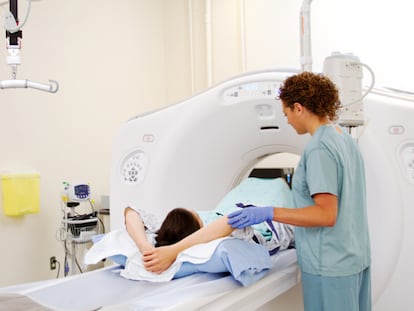Cable sobre la crisis en el Gobierno de Funes
La Embajada considera que las tensiones internas han convertido al Ejecutivo salvadore?o en "esquizofr¨¦nico"
| ID: | 245623 |
| Date: | 2010-01-26 19:14:00 |
| Origin: | 10SANSALVADOR37 |
| Source: | Embassy San Salvador |
| Classification: | SECRET |
| Dunno: | 09SANSALVADOR1033 09SANSALVADOR1045 09SANSALVADOR1101 09SANSALVADOR1238 09SANSALVADOR789 09SANSALVADOR978 |
| Destination: | VZCZCXYZ0000 RR RUEHWEB DE RUEHSN #0037/01 0261915 ZNY SSSSS ZZH R 261914Z JAN 10 FM AMEMBASSY SAN SALVADOR TO RUEHC/SECSTATE WASHDC 0262 INFO WHA CENTRAL AMERICAN COLLECTIVE |
S E C R E T SAN SALVADOR 000037 SIPDIS E.O. 12958: DECL: 2020/01/19 TAGS: PREL, PGOV, ECON, ES SUBJECT: With ARENA Fractured, Funes is FMLN's Only Rival REF: 09 SAN SALVADOR 1101; 09 SAN SALVADOR 789; 09 SAN SALVADOR 978 09 SAN SALVADOR 1033; 09 SAN SALVADOR 1238; 09 SAN SALVADOR 1045 CLASSIFIED BY: RBlau, CDA, DOS; REASON: 1.4(D) 1. (C) Summary: Eight months into the Funes presidency, the GOES can best be characterized as schizophrenic. The part of the government that Funes controls is moderate, pragmatic, responsibly left-of-center and friendly to the USG. The part he has ceded to hard-line elements of the (left-wing) Farabundo Marti National Liberation Front (FMLN) is seeking to carry out the Bolivarian, Chavista game-plan, including implacable hostility towards the USG. Divisions on the right have given the FMLN a dominant position in the Legislative Assembly. However, the FMLN does not have an outright majority in the legislature, and it faces strong opposition in the popular and independent-minded President Funes. Funes's popularity could erode quickly if his administration does not start showing visible results in reducing violent crime and reviving the economy. The government's long-run inability to tackle crime or produce economic growth, coupled with petty infighting and corruption within the country's political parties, raises questions about the future of democratic governance in El Salvador. End summary. --------------------------------------- FUNES-FMLN RELATIONS STRAINED BUT CIVIL --------------------------------------- 2. (S) The FMLN's relationship-of-convenience with Mauricio Funes has soured since the March 2009 election. Early in his tenure, Funes surrounded himself with centrist advisors and laid out a moderate, pro-U.S. foreign policy - moves FMLN hardliners saw as an attempt to distance himself from their influence. Recognizing Funes's popularity and needing his support, the FMLN sought subtle ways to challenge Funes's independence. Starting in September 2009, FMLN hardliners within Funes's cabinet (most notably Vice President and Education Minister Salvador Sanchez Ceren) gave anti-American speeches, announced El Salvador's intention to join ALBA, and made high-profile visits to Cuba and Venezuela - each action carefully choreographed to defy Funes's agenda but with the pretense that the officials were acting as FMLN representatives, not as members of the Funes government (see reftel A). Meanwhile, Public Security Minister Manuel Melgar has sought to politicize the National Civilian Police (PNC) and the FMLN has used its "territorial" ministries (Labor, Health, Education and Gobernacion) to extend their geographic and bureaucratic hold over the GOES. Funes advisors told us the FMLN may have also used their control of the Salvadoran intelligence agency to bug phones in the Casa Presidencial (see reftel B). Thus far, however, the two sides continue to cooperate on issues of mutual interest, including the budget and tax reform passed in December. 3. (C) While the Funes-FMLN conflict would appear to benefit the right, internal divisions there have prevented the (center-right) National Republican Alliance (ARENA) from mounting a serious opposition. Since October, thirteen legislative deputies and scores of mayors and local party functionaries have left ARENA, most of them joining the newly-formed Grand Alliance for National Unity (GANA) (see reftel C). ARENA leaders blame these defections on former president Antonio Saca, whom the party expelled from its ranks in December 2009. While not officially a member of any party, Saca is widely rumored to be the inspirational and financial force behind GANA. 4. (C) This crisis has not only dashed ARENA's hope of forming a majority alliance in the Legislative Assembly, it has also called into question the identity of the party, for years considered one of the most well-organized and ideologically-unified in Latin America. Still, XXXXXXXXXXXX told PolOff that the crisis has galvanized the party's base, which XXXXXXXXXXXX says is "angry as hell" at Saca and the GANA "traitors." According to XXXXXXXXXXXX, in February ARENA plans to roll out a Contract with America-style publicity campaign that will emphasize "center-right pragmatism" and distance the party from President Saca's corrupt legacy. XXXXXXXXXXXX said that ARENA president Alfredo Cristiani has instructed party leaders to focus their criticism on the FMLN and avoid attacking GANA or President Funes, both of which ARENA views as potential allies. Until the 2012 legislative elections, however, ARENA will remain a marginalized force in national politics. 5. (C) Aside from the FMLN and ARENA, the country's other political parties are small, weak, and ideologically malleable. Their only real selling points are as coalition partners providing the final votes on closely fought legislation. Neither the FMLN nor ARENA can achieve a legislative majority without the support of GANA or the (opportunist) National Conciliation Party (PCN). In recent months, the FMLN has teamed with both GANA and the PCN to reshuffle the legislature's leadership positions and pass a contentious tax increase (see reftels D and E). Given their strategic positions, GANA and the PCN will likely remain major players in legislative battles ahead, demanding, as they were rumored to have done in their previous votes with the FMLN, political favors and covert payments in exchange for their support. ----------------------------------------- Funes's Challenges: Crime and the Economy ----------------------------------------- 6. (C) Public security ranks atop most polling on the nation's priorities, particularly after a 37 percent increase in homicides in 2009. Despite great efforts, successive administrations have failed to make much of a dent in the intractable street-gang problem, so Funes's team will need to be both creative and ambitious in its approach to make any headway. So far, they have been neither. Funes's most significant public security reform to date has been a temporary deployment of troops to patrol high-crime areas (see reftel F) which news reports suggest may have moderately reduced crime in those areas since the November 2009 deployment. However, the constitution limits such deployments to six months, and Funes has yet to propose reforms to the GOES security apparatus that would make those gains sustainable. He has not moved to provide the National Civilian Police (PNC) with significant increases of badly-needed personnel, equipment and training, nor sought institutional changes in PNC culture, that will result in more effective law enforcement and crime control. 7. (C) The other major concern for the GOES is the sluggish economy, which continues to feel the effects of the global financial crisis and the recession in the U.S. According to the GOES, GDP declined 3.5 percent in 2009 and is projected to grow less than 1 percent in 2010 - its worst two-year performance since 1992. Unfortunately, Funes has few options available to stimulate a recovery: the GOES has limited funds for countercyclical fiscal activity, even with President Funes's modest tax increase, and dollarization rules out monetary stimulus. Funes and his economic team understand the importance of free-market incentives, but have been anemic in their efforts to attract private investment. Ultimately, powerful trade and remittance relationships mean that the Salvadoran economy will only recover following a sustained economic recovery in the U.S. ------- Comment ------- 8. (C) GANA's threat to ARENA now appears more serious than it did at first. GANA has poached dozens of ARENA-loyalists in recent weeks and has demonstrated through an extravagant convention and a subsequent publicity campaign that it has the deep pockets to put up a real fight. Whispers within ARENA also suggest GANA's critique of ARENA's elitism has struck a chord among mid-level party functionaries, many of whom secretly sympathize with GANA despite remaining within ARENA. ARENA's rebound depends on recuperating financing, which it lost when it became an opposition party without GOES patronage to hand out. It still represents the only organized force capable of confronting the growing influence of the FMLN. 9. (C) Funes's ego has little chance of rapprochement with the hard-line FMLN. If things continue to deteriorate, we could see an open break between the two sides, possibly resulting in a new alliance between Funes and an existing party (perhaps the center-left Democratic Change (CD)) for the 2012 legislative elections. Funes would then need to shake up his cabinet and seek right-of-center allies in the Legislative Assembly to pass his agenda. The FMLN response would be ugly - massive street protests, labor strikes, road blockages, threats of violence, legislative logjams - and paralyze some government operations and place a further drag on the struggling economy. 10. (C) The GOES's inability to make gains in public security, continued anemic growth and the disintegration of the right taken together present a challenging road ahead for democracy in El Salvador, especially if coupled with a Funes-FMLN split. Funes's persistent high popularity ratings, now well over 80 percent, make it too soon to sound the alarm, but democratic institutions are vulnerable. Sanchez Ceren's recent call for sweeping constitutional reforms to institute "participatory democracy" is a timely reminder that the hard-line FMLN's threat to Salvadoran democracy is real. The Embassy, allied with civil society, will continue to engage and support moderates in the GOES while working with democratic forces across the political spectrum to strengthen Salvadoran constitutional institutions. BLAU |
Traducci¨®n autom¨¢tica. Puede que el texto traducido no sea fiel al original
Tu suscripci¨®n se est¨¢ usando en otro dispositivo
?Quieres a?adir otro usuario a tu suscripci¨®n?
Si contin¨²as leyendo en este dispositivo, no se podr¨¢ leer en el otro.
FlechaTu suscripci¨®n se est¨¢ usando en otro dispositivo y solo puedes acceder a EL PA?S desde un dispositivo a la vez.
Si quieres compartir tu cuenta, cambia tu suscripci¨®n a la modalidad Premium, as¨ª podr¨¢s a?adir otro usuario. Cada uno acceder¨¢ con su propia cuenta de email, lo que os permitir¨¢ personalizar vuestra experiencia en EL PA?S.
En el caso de no saber qui¨¦n est¨¢ usando tu cuenta, te recomendamos cambiar tu contrase?a aqu¨ª.
Si decides continuar compartiendo tu cuenta, este mensaje se mostrar¨¢ en tu dispositivo y en el de la otra persona que est¨¢ usando tu cuenta de forma indefinida, afectando a tu experiencia de lectura. Puedes consultar aqu¨ª los t¨¦rminos y condiciones de la suscripci¨®n digital.
































































